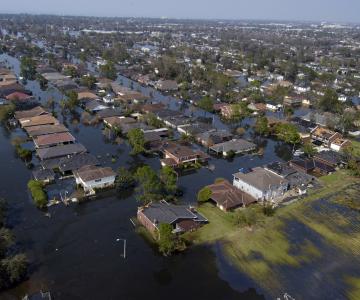Academic article
Book: Permaculture and Climate Change Adaptation: Inspiring Ecological, Social, Economic and Cultural Responses for Resilience and Transformation
Permaculture and Climate Change Adaptation: Inspiring Ecological, Social, Economic and Cultural Responses for Resilience and Transformation by Thomas Henfrey and Gil Penha-Lopes
Book: Permaculture and Climate Change Adaptation: Inspiring Ecological, Social, Economic and Cultural Responses for Resilience and Transformation
Permaculture and Climate Change Adaptation: Inspiring Ecological, Social, Economic and Cultural Responses for Resilience and Transformation by Thomas Henfrey and Gil Penha-Lopes
Commitment to Emissions Resrictions of Major Consumers of Electricity in Brazil
In the context of global concerns about climate change that stem from the
alarming and unprecedented growth of greenhouse gas (GHG) emissions, this study
discusses the use of energy by large consumers of electricity in Brazil in the perspective of
sustainable development, energy resources, and regulatory policies. It evaluates the
commitment to emissions restrictions among the major customers of an electricity utility
company that serves 4.1 million consumers (68% of the population and 66% of the gross
Adaptation of irrigation networks to climate change: Linking robust design and stakeholder contribution
Agriculture is a particularly sensitive sector to the potential impacts of climate change. Thus, irrigation infrastructure is required to be robust to cope with these potential threats. The objective of this research is designing more robust irrigation networks, considering cost and stakeholder contribution.
Hydrologic determinants of climate change impacts on regulated water resources systems
This paper assesses the effect of climate change on water availability for consumptive use for a river basin taking into account the regulation capacity of its water supply systems and a set of management standards (restrictions, demands, reliability). A specific sensitivity index to climate change defined by the relation between the unitary variation of water availability and the unitary variation of the average annual inflow is studied.
Strategies to reduce water stress in Mediterranean river basins
A portfolio of water management strategies now exists to contribute to reach water demand and supply targets. Among them, integrated water resource management has a large potential for reducing water disagreement in water scarcity regions. Many of the strategies are based on well tested choices and technical know-how, with proven benefits for users and environment.
'Water for Agriculture' in 'Routledge Handbook on the Economics of Climate Change Adaptation'
In the beginning of the 21st century water to support food production seems to stand at a crucial juncture. Projections of water availability remain complex and uncertain (Vorosmarty et al., 2010), not least due to changes in population, consumption patterns and environmental policy (Iglesias et al., 2011a). Research and technology have been unusually vigorous and have shed light on many possible innovations (Sunding and Zilberman 2001, Nordhaus 2002, Smit and Skinner 2002).
Adaptation strategies for agricultural water management under climate change in Europe
Climate change is expected to intensify the existing risks, particularly in regions where water scarcity is already a concern, as well as create new opportunities in some areas. Efforts to develop adaptation strategies for agricultural water management can benefit from understanding the risks and adaptation strategies proposed to date. This understanding may assist in developing priorities for the adaptation of water resources for irrigation.
Institutional barriers to climate change adaptation in decentralised governance structures: Transport planning in England
Climate change poses governance challenges at diverse scales and across the dimensions of risk
and responsibility. Local governments are central to the delivery of action on both decarbonisation
and adapting to the risks of climate change. Yet there are likely to be significant differences
across local governments in terms of their capacity to act on climate change. This research documents
and explains differences in the capacity to act within response spaces to risks to transport




